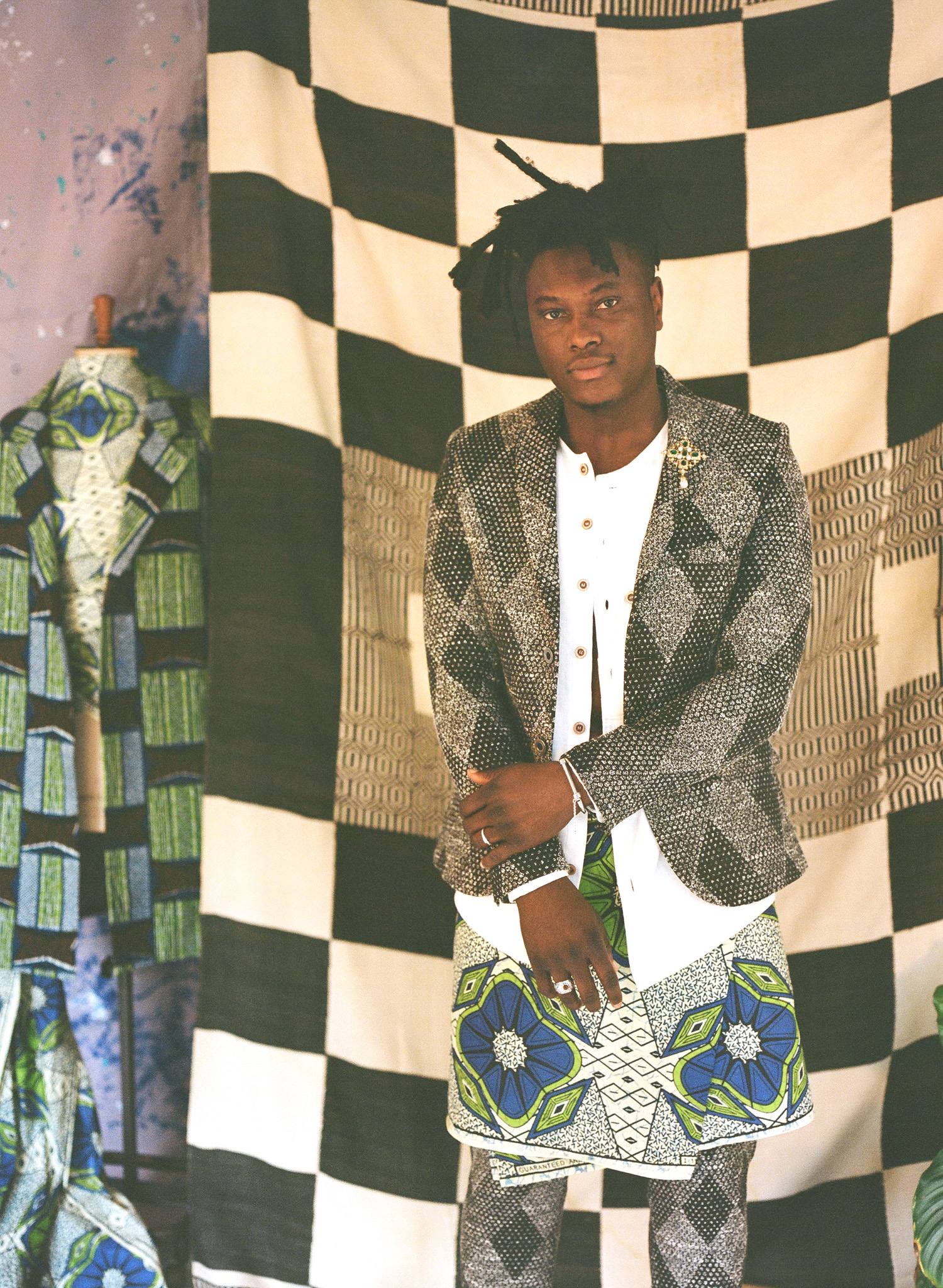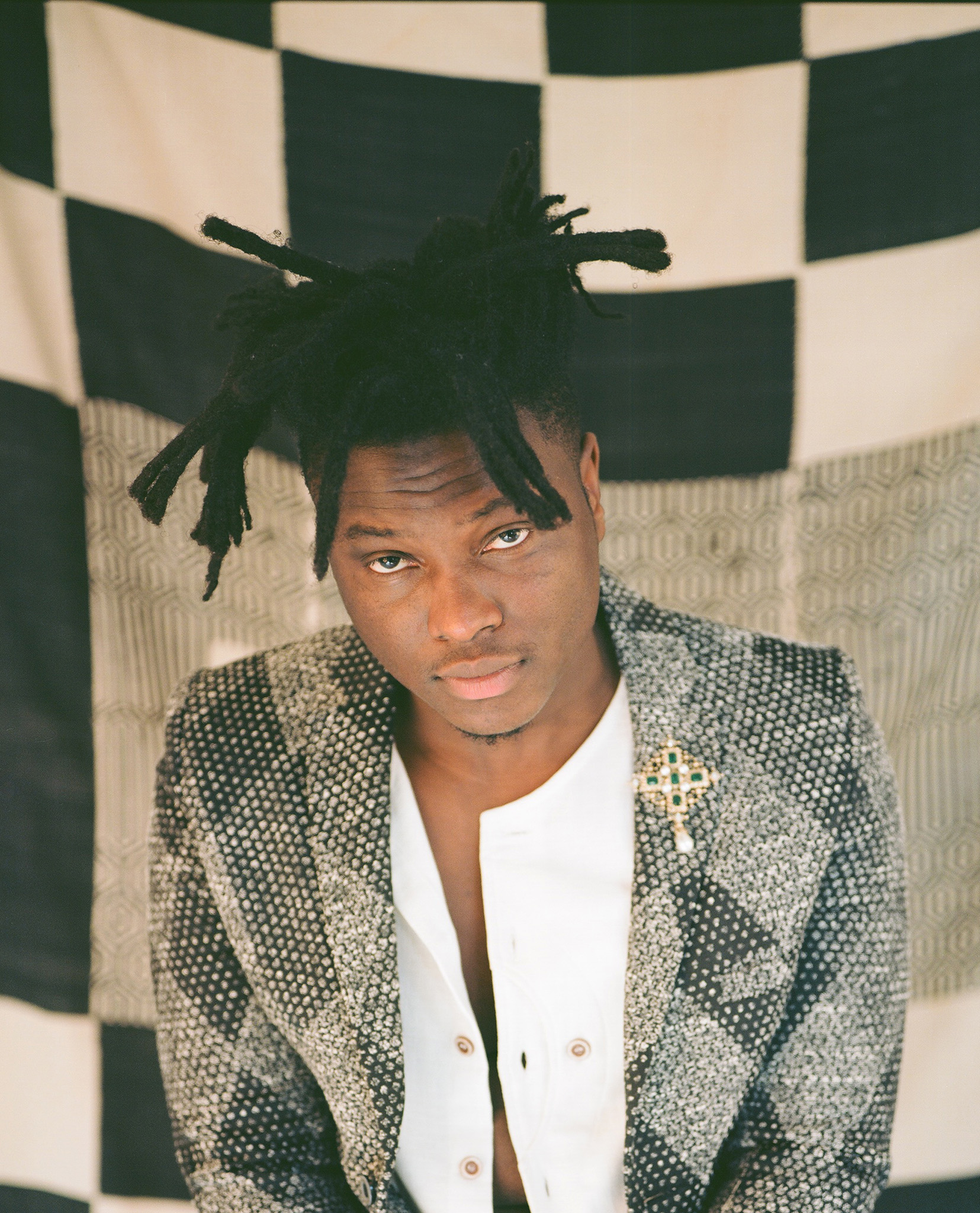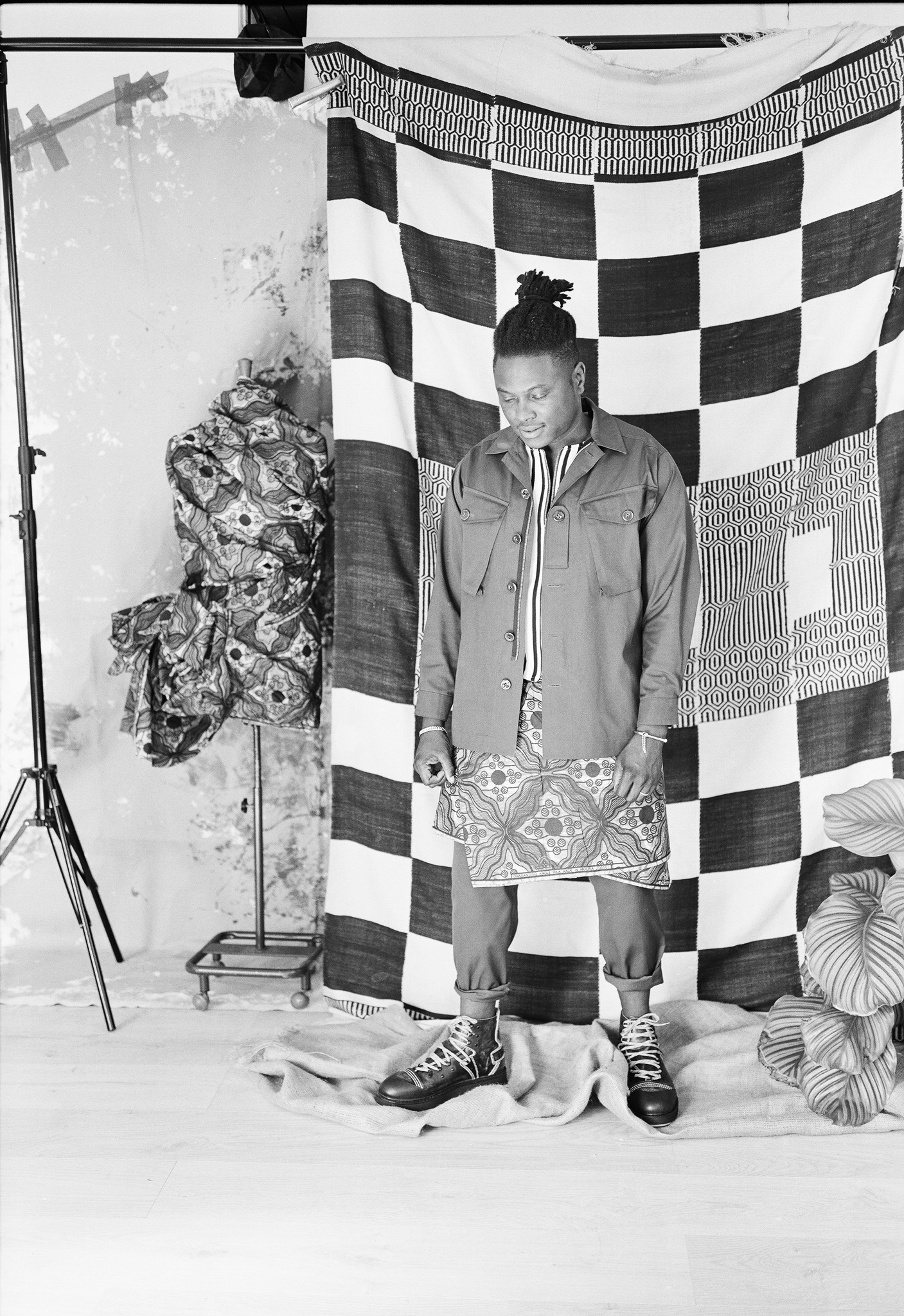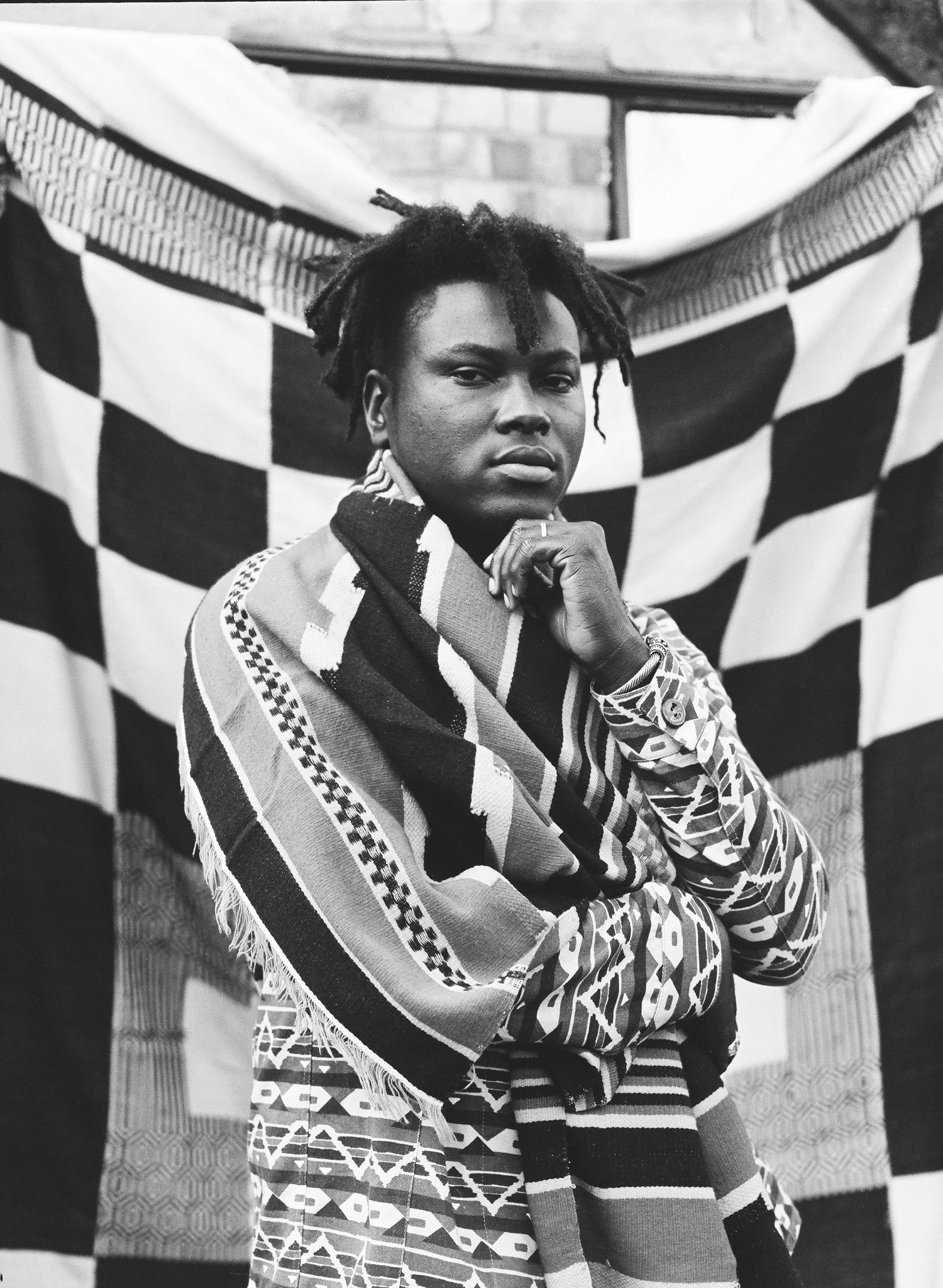The Sierra Leonean poet talks to us about growing up across continents and his forthcoming Southbank Centre show
“Being black and writing poetry, you have to justify why you’re a poet and not a spoken word artist,” says Julian Knox, the man behind the alias Julianknxx. “But for me, being from Sierra Leone, where stories are passed down verbally, the page isn’t enough, so while it’s always page-first, the expression is also important.” With emotion echoing through his voice, Knox delivers his powerful poetry to music and also uses video-based visual installations. And that’s exactly what people can expect from his upcoming show, Broken, at London’s Southbank Centre, where he’ll go on stage with his producer Happy Cat Jay.
Broken is also the name of the collection of beautifully illustrated poetry that this rising star has dedicated to his two-year-old daughter. With a level of honesty that’s as remarkable as his talent, Knox’s book lets you in on his true feelings from the time of his adult life when he was most under pressure. “I was going through a lot when I realised I was about to be a dad. I started asking myself all of these big questions about the meaning of life, thinking about social justice issues and basically having an existential crisis.”
Fatherhood and marriage also caused the poet to think more about male privilege. “There are a lot of things about my masculinity that I need to unlearn. Having a daughter meant that I had to figure that out properly because I don’t want to be the first person that my kid experiences toxic masculinity from,” he explains. “And also, how do I communicate to her that she’s not a second person? I don’t want her to feel that because she’s female she’s limited in anyway. And love, what is love? She’s going to fall in love one day and she needs to know the levels, and to not have low expectations.” The stream of consciousness that makes up the way Julian speaks is only a fraction of his busy brain: “My poems feel like I’m rambling because that’s what was happening. You’re in my head and I’m panicking about all of these things.”
With suicide now the biggest killer of men under 45 in the UK, his writing about mental health is as timely as it is pertinent. In his piece, Death of a Non-Fatal Suicide, he speaks about the importance of honesty, love and acceptance in dealing with depression. “It’s a literal non-literal poem about how my wife and mother saved me from myself. It’s me being honest and saying that sometimes I do feel like I can’t go on.” Crucially, he is reaching some men with whom it resonates: “It opens up a conversation about anxieties and feelings that men don’t usually speak up about.”
Inspired by the tragic death of Eric Garner in New York in 2014 at the hands of a police officer, which sparked national protests, Knox wrote I Can’t Breathe, in which he reflects on his own blackness. “I had this image in my head of Eric Garner being choked and he was saying ‘I can’t breathe’,” he explains. “It’s looking at the value of black skin in this world and feeling like you have no worth and that people won’t listen. His death is just echoing what we’re all saying: that we can’t breathe, that we need more air.”
Growing up in Freetown as civil war ravaged the country, Knox’s family fled to Gambia when he was nine years old. They then moved to the UK when Knox was a teenager and aside from attending university in Coventry, London has been his home ever since. While the UK has been a safe haven of opportunity, the trade-off has been the feeling of being other. “We don’t experience racism in the same way as it’s experienced in the US but trying to navigate a professional space makes you aware of your blackness,” he reflects. “In the UK there’s a way that we hide it really well and we’re really conservative, so you can leave a space and think, wait, did that really happen? But I know what it’s like to live in a country where everyone is black, and you don’t have to worry about your skin.”
It is memories of home that influence his new work. “I have a poem called Freetown and it’s just about me happily roller-skating through the city with my friends,” he reminisces. “I’m trying to capture what I can remember from being a young boy in this place that’s deemed to be one of the poorest cities in the world. In future, I would like to take my time and write more from a Sierra Leonean perspective and fully delve into brokenness,” he says. “With Broken, the reader is in my head and I’m rambling, but for my next collection I’ll tell my story - I’m trying to understand death, chaos and war.”
While he tackles these heavy issues in his work, the way that he writes about love and its capacity to heal mean that his words are imbued with optimism and light. And never more so than in the title poem where he reflects upon kintsugi, the Japanese tradition of mending broken pottery with pure gold, which leaves it even more beautiful than before. The analogy is clear. “All the pain that I’ve gone through has made me the person that I am today and given me a level of sensitivity.”
Currently on his bedside table are The Heinemann Book of African Poetry, Danez Smith’s Don’t Call Us Dead and the work of Anthony Anaxagorou. But it’s from his friends, family and faith that he draws the most inspiration. “Let me not forget God – I’m not just out here trying to be ratchet, I have a purpose in life.” Amen to that.
Catch Julianknxx at the Southbank Centre on Tuesday 23 October at 7:30pm as part of its Literature Festival. Here information here.
Photography Karli Jai
Styling Andrew McCormack
Set Tamara Barton Campbell
Fashion Labrum London
Published on 19/10/2018





